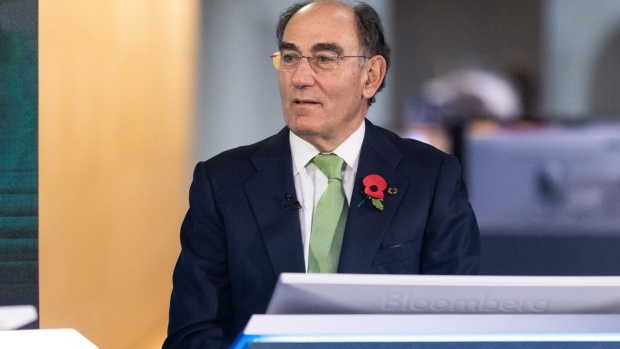Jan 16, 2023
Europe’s Energy Crisis Isn’t Over Yet for Iberdrola
, Bloomberg News

(Bloomberg) -- Europe has been “lucky” this winter as mild weather reduced fuel demand but the region hasn’t seen the end of an energy crisis, Iberdrola SA’s executive chairman said.
“As long as energy markets are over-reliant on fossil fuels and exposed to geopolitical events, they will remain fragile,” Ignacio Galan said. “We should not think that the energy crisis is over for good.”
The mild weather has ended predictions of energy shortages that could damage the region, boosting the euro currency and stock markets. The economic outlook has recovered so much that Goldman Sachs Group Inc. economists no longer predict a euro-zone recession for 2023.
Yet energy security is too important to leave to luck and mild winter weather, Galan said. He sees building more renewable power as the best way to avoid future shocks, with his company already investing €17 billion ($18.4 billion) in this until 2025.
The mild temperatures have driven down prices for gas sharply from near-record levels last year and left plenty in storage. Industry consensus is growing that it will be possible to refill reservoirs for next winter with hardly any Russian gas. However, the world is still expected to be short of gas through 2026.
The EU is trying to wean itself off gas with plans to boost renewable energy. The bloc, which got about a fifth of total energy from renewables in 2020, lifted its target to 45% by 2030 in the wake of the war in Ukraine. Germany’s Chancellor Olaf Scholz thinks the country needs to step up the pace and set up three to four large wind turbines every day to reach its climate goals.
Iberdrola, Spain’s largest utility, says renewable generation needs to increase as much as six-fold by 2040 globally to meet net zero emissions by 2050. The company aims to reach a total capacity of 52 gigawatts worldwide by 2025, and is also investing €27 billion in the next three years in networks.
“It is both troubling and ironic that only unseasonable winter temperatures triggered by climate change have saved large parts of the northern hemisphere from much more severe threats to energy security and affordability this winter,” Galan said.
©2023 Bloomberg L.P.






